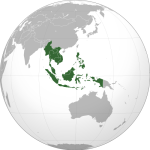Yearly Archives: 2013
Mr. Market is Having Another Fit Over the Fed’s Taper
Asian markets got off to an only mildly down start, so I busied myself on a post that took some concentration, along with some nagging tech matters. As I’m about to turn in, it appears that Asian markets decayed during the trading day and Europe is off to a wobbly start.
Read more...ObamaCare’s Relentless Creation of Second-Class Citizens (6)
By lambert strether of Corrente.
And we go to Happyville, instead of to Pain City. –Thomas Pynchon, Gravity’s Rainbow
In this continuing series, we’ve been looking at how ObamaCare, through its inherent system architecture, relentlessly creates first- and second-class citizens; how it treats citizens, who should be treated equally, unequally, for whimsical or otherwise bogus reasons. It’s all in the luck of the draw! If you live in the right place or have the right demographic, you go first class to Happyville. If you don’t, you go in coach to Pain City.
Read more...Taking the Rhetorical Bias Out of Economists’ Discussions of Income Taxation and Public Spending
Yves here. Mirabile dictu! A VoxEU article discusses, admittedly in suitably dense economese, how economists create and enforce biases against taxation by using terminology that presupposes that it’s bad. And as Lambert noted after he saw it went up here: “That post got Tyler Cowen really ticked off, so it must be good.”
Read more...China Prepares to Bail Itself Out
By Houses and Holes, who is a regular contributor at The Sydney Morning Herald, The Age, and The Drum and is a former commentator at Business Spectator. He is also the co-author of The Great Crash of 2008 with Ross Garnaut. He edits MacroBusiness. Cross posted from MacroBusiness.
Things are happening which suggest China is preparing for a period of slower growth and bank stress. First, from a note by Capital Economics:
Read more...Links 8/19/13
Bill McKibben: Movements Without Leaders
Yves here. The 50th anniversary of Martin Luther King’s “I Have a Dream” speech is ten days away. Brace yourself for the reminisces, most of which will be genuine, heartfelt, and insightful, while others which will treat the occasion as an opportunity for brand identification.
McKibben, a well-known and effective climate change activist, raises the question of leadership in movements to promote social change. He argues that the charismatic chieftain is out, and the model now is that of distributed leadership, with lower level “leaders” being more critical to movement success than ever before.
Read more...“We’re Building a Domestic Army” – Marine Corps Colonel Peter Martino Before Concord, NH Town Council
By Lambert Strether of Corrente.
And what makes Martino think that? Well, the Concord PD proposes to accept a $258,000 Federal grant a Bearcat, which stands for “Ballistic Engineered Armored Response Counter Attack Truck”; in other words, an armored personnel carrier. Here’s the video of Col. Martino:
Read more...Bill Black: Obama’s FBI Channels the Tea Party – Partner with the Banks and Blame the Poor for the Crisis
Yves here. This is the latest installment of Bill Black’s forensic work into why the FBI, which had in the past been a critically important working oar in investigating banking industry frauds, was nowhere to be found before and after the global financial crisis. This post, on how the Mortgage Bankers’ Association, succeeded in getting the FBI focused solely on frauds made on banks, as opposed to by banks, is an ugly and critical bit of the story.
Read more...Yanis Varoufakis: Looking Back on the Global, European and Greek (post-2008) Crises: Interview with D. Polymenopoulos
By Yanis Varoufakis, a professor of economics at the University of Athens. Cross posted from his blog Dimitris Polymenopoulos interviewed me recently on behalf of Greek-American newspaper The Greek Star. Click here for the original source or read on… How did the EU profit from Greek indebtedness all these years? The implicit contract between Greece […]
Read more...Links 8/18/13
Global Political Risk, ASEAN Part II: Palm Oil, Islam, and Insurgencies
By Lambert Strether of Corrente.
 ASEAN (Association of Southeast Asian Nations), says WikiPedia, would rank as the eighth largest economy in the world if it were a single entity. It includes ten countries: Brunei, Cambodia, Indonesia, Laos, Malaysia, Myanmar (once Burma), the Philippines, Singapore, Thailand, and Vietnam. Last week, we traveled down the Mekong from Myanmar, through Cambodia and Laos, to Vietnam. This week we’ll look at countries where the common thread is not a river, but significant (even official) Muslim presence: Thailand, Malaysia, Indonesia, and the Philippines. One difference between last week’s ASEAN countries and this week’s: No insurgencies last week. This week, lots of them. One similarity: Genocide, with the genocidaires still strutting about, last week in Cambodia, this week in Indonesia. Next week I’ll do the outliers: The peninsular Korea, the city state of Singapore, and the petro-statelet of Brunei.
ASEAN (Association of Southeast Asian Nations), says WikiPedia, would rank as the eighth largest economy in the world if it were a single entity. It includes ten countries: Brunei, Cambodia, Indonesia, Laos, Malaysia, Myanmar (once Burma), the Philippines, Singapore, Thailand, and Vietnam. Last week, we traveled down the Mekong from Myanmar, through Cambodia and Laos, to Vietnam. This week we’ll look at countries where the common thread is not a river, but significant (even official) Muslim presence: Thailand, Malaysia, Indonesia, and the Philippines. One difference between last week’s ASEAN countries and this week’s: No insurgencies last week. This week, lots of them. One similarity: Genocide, with the genocidaires still strutting about, last week in Cambodia, this week in Indonesia. Next week I’ll do the outliers: The peninsular Korea, the city state of Singapore, and the petro-statelet of Brunei.
Dan Kervick: Krugman’s Flawed Model of Open Market Operations
By Dan Kervick, who does research in decision theory and analytic metaphysics. Cross posted from New Economic Perspectives
In my recent post Escaping from the Friedman Paradigm, I noted the following remark by Paul Krugman on the way monetary policy ordinarily functions when interest rates have not fallen to the zero bound:
Read more...Links 8/17/13
Bill Black: The Incredible Con the Banksters Pulled on the FBI
Yves here. Bill Black continues his forensic work about the dogs that didn’t bark in both the runup to and the aftermath of the crisis.
Read more...



